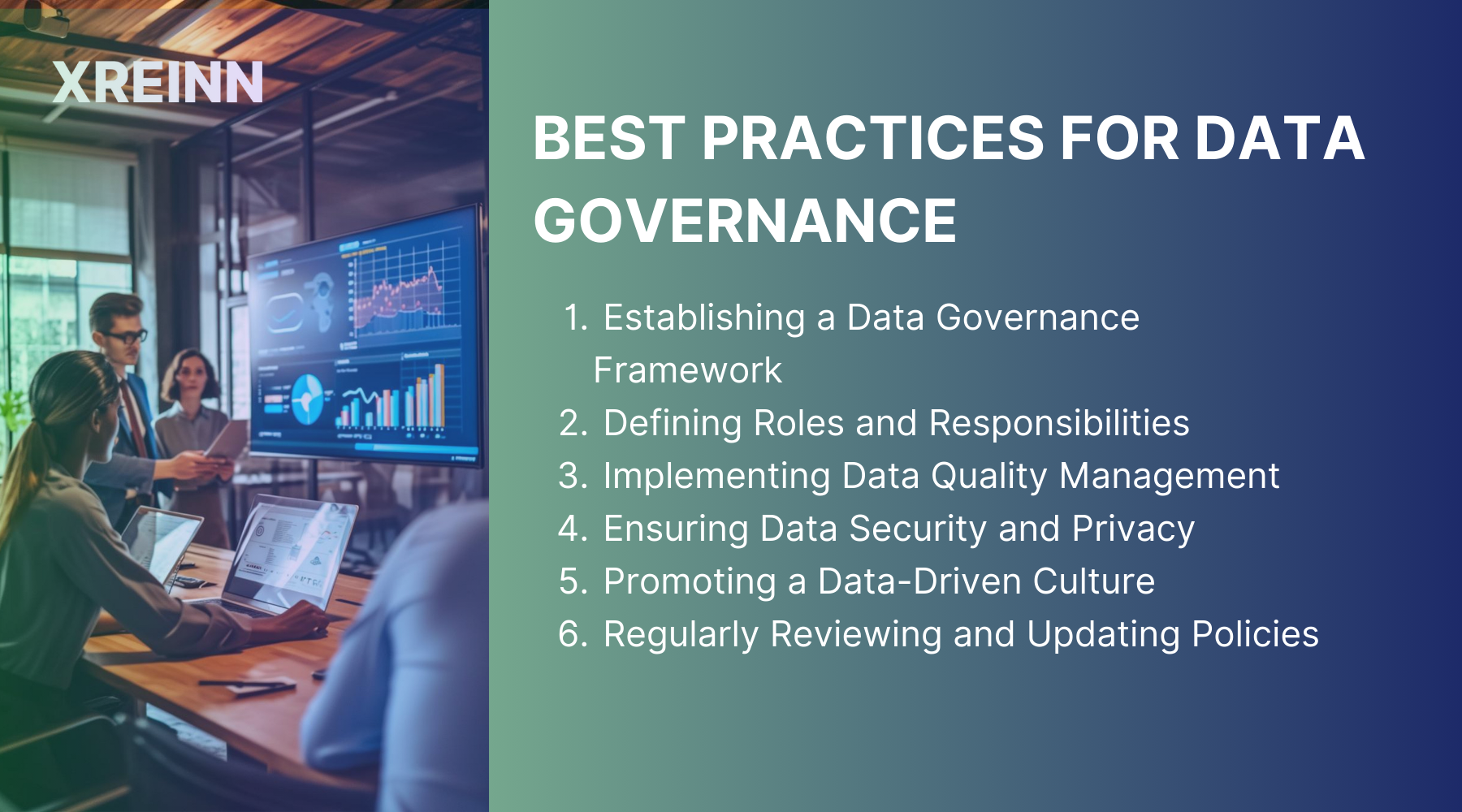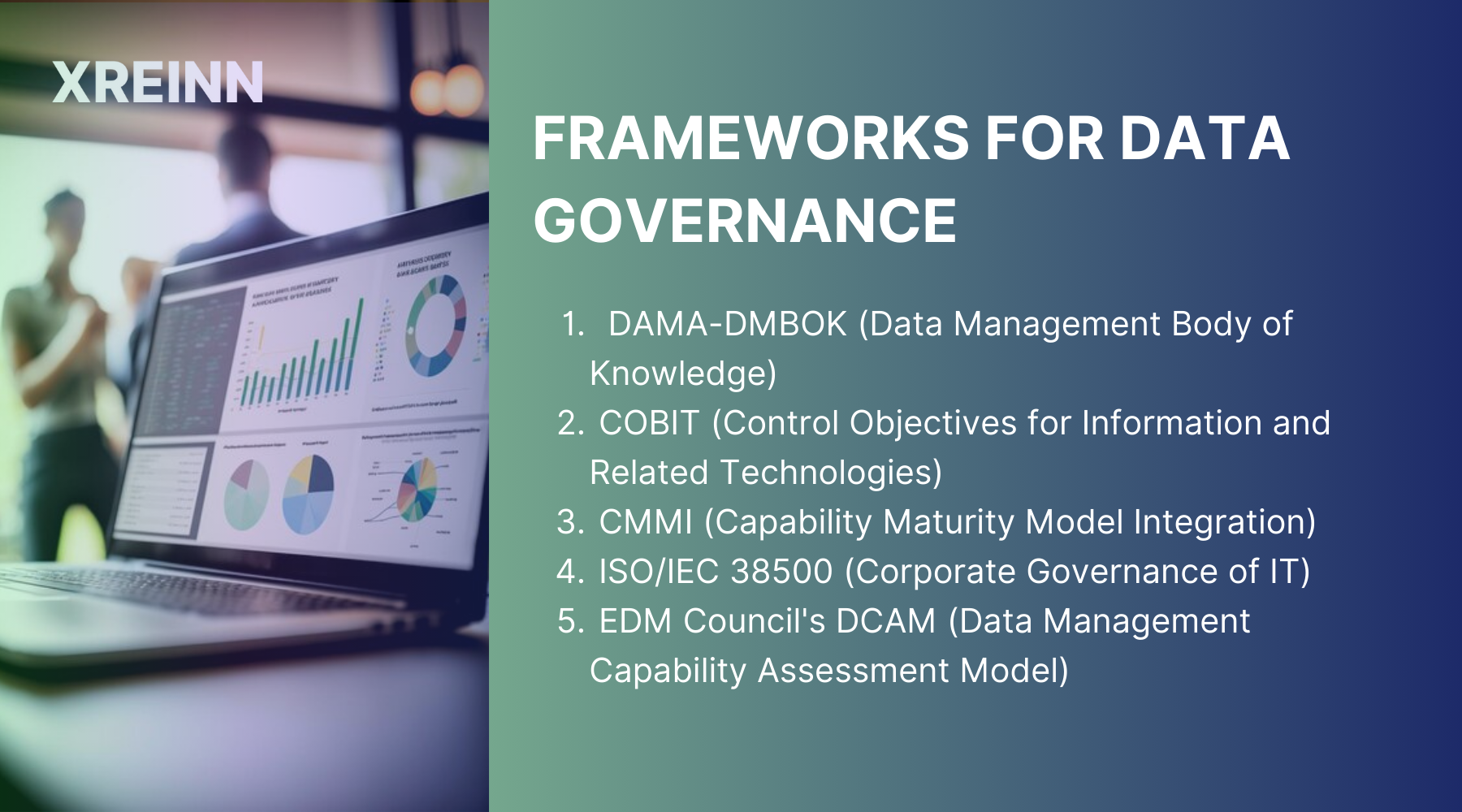Data Analytics
Mastering Data Governance: Best Practices and Proven Frameworks
Jul 06, 2024
Data is one of the most valuable assets for any organization. The vast amounts of data generated, collected, and stored by businesses require proper management and governance to ensure its accuracy, security, and usability.
Data governance is the framework that allows organizations to manage data effectively, ensuring it is reliable, consistent, and used appropriately. Without a strong data governance strategy, organizations risk data breaches, compliance issues, and inefficient use of resources. Implementing strong data governance practices is essential for using data to drive business innovation and growth.
This article examines the critical role of data governance, highlights essential best practices, and outlines the frameworks that support successful data management strategies.
What is Data Governance?
Data governance is the overall management of the availability, usability, integrity, and security of data within an organization. It encompasses a set of processes, policies, standards, and metrics to ensure data is used effectively and efficiently. It enables the organization to achieve its goals. Essentially, data governance provides a framework to manage data as a valuable asset.
Importance of Data Governance
Data governance is crucial for ensuring data quality, as it establishes standards and processes to maintain data accuracy, completeness, and reliability, which are essential for informed decision-making. By providing a structured approach to data security, data governance protects sensitive information from cyber threats and breaches, ensuring compliance with privacy regulations like the General Data Protection Regulation (GDPR) and the California Consumer Privacy Act (CCPA). It also facilitates regulatory compliance by offering a clear framework for data handling, storage, and sharing, thereby building trust with customers and stakeholders.
Furthermore, data governance improves decision-making by ensuring data consistency and accuracy, enabling better strategic planning and operational decisions. It supports data integration and interoperability across various systems and formats within large organizations, allowing for comprehensive analysis and improved coordination.
Best Practices for Data Governance

Establishing a Data Governance Framework
A data governance framework provides a structured approach to managing data. It outlines the policies, procedures, and standards that govern data management within the organization. This framework should be aligned with the organization's goals and objectives, ensuring that data governance supports overall business strategies.
Defining Roles and Responsibilities
Clear roles and responsibilities are essential for effective data governance. Organizations should designate data managers, data owners, and data administrators who are accountable for different aspects of data management. These roles ensure that there is a clear line of accountability and that data governance activities are carried out effectively.
Implementing Data Quality Management
Data quality management involves establishing processes and standards to ensure data accuracy, completeness, and consistency. This includes data profiling, data cleansing, and data validation activities. Regular monitoring and auditing of data quality are essential to maintain high standards.
Ensuring Data Security and Privacy
Data governance should include customized security and privacy measures to protect sensitive information. This involves implementing access controls, encryption, and data masking techniques. Organizations should also establish clear policies for data handling and sharing, ensuring compliance with relevant regulations.
Promoting a Data-Driven Culture
Creating a data-driven culture within the organization is essential for successful data governance. This involves promoting the value of data, encouraging data literacy, and providing training and resources to employees. A data-driven culture ensures that data governance principles are adopted and followed by everyone in the organization.
Regularly Reviewing and Updating Policies
Data governance is not a one-time activity but an ongoing process. Organizations should regularly review and update their data governance policies and procedures to reflect changing business needs, technological advancements, and regulatory requirements. Continuous improvement is key to maintaining effective data governance.
Frameworks for Data Governance

DAMA-DMBOK (Data Management Body of Knowledge)
The DAMA-DMBOK framework is a comprehensive guide to best practices. It covers various aspects of data governance, including data quality, data security, data architecture, and data integration. The framework provides a structured approach to managing data across the organization, ensuring consistency and reliability.
COBIT (Control Objectives for Information and Related Technologies)
COBIT is a framework for IT governance and management that includes data governance components. It provides a comprehensive set of practices, tools, and models to ensure effective data management and governance. COBIT focuses on aligning IT goals with business objectives, ensuring that data governance supports overall organizational goals.
CMMI (Capability Maturity Model Integration)
The CMMI framework provides a structured approach to improving processes, including data governance processes. It outlines five maturity levels that organizations can achieve, from initial (ad hoc processes) to optimizing (continuous improvement). CMMI helps organizations assess their current data governance practices and develop a roadmap for improvement.
ISO/IEC 38500 (Corporate Governance of IT)
ISO/IEC 38500 is an international standard for corporate governance of IT, including data governance. It provides principles and a model for effective governance of IT assets, ensuring that data is managed responsibly and ethically. The standard emphasizes the importance of accountability, transparency, and sustainability in data governance.
EDM Council's DCAM (Data Management Capability Assessment Model)
DCAM is a framework developed by the EDM Council to assess and improve data management capabilities. It provides a comprehensive set of best practices and benchmarks for data governance, covering areas such as data quality, data security, and data architecture. DCAM helps organizations identify gaps in their data governance practices and develop strategies for improvement.
Conclusion
Data governance is a critical component of modern business management. It ensures that data is accurate, secure, and used appropriately, providing a solid foundation for decision-making and regulatory compliance. By implementing best practices and adopting established frameworks, organizations can effectively manage their data assets, realizing their full potential. As data continues to grow in importance, strong data governance will be essential for achieving long-term success and maintaining a competitive advantage.

Data Analytics
Jun 27, 2024Master key concepts in data analytics with practical tips to enhance decision-making and achieve success in your projects and professional growth

Data Analytics
Jul 01, 2024Learn the essential stages of the data analytics workflow to turn your data into valuable business insights and drive growth.

